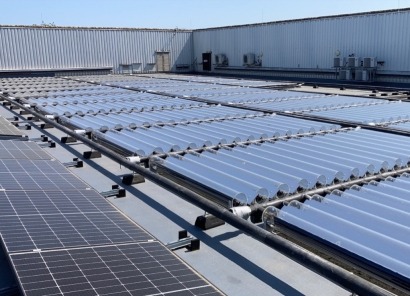
Proposed in December 2021 as part of the Fit for 55 package, the EPBD recast is critical to the decarbonization of the building stock, which accounts for 40% of EU energy demand and 36% of its greenhouse gas emissions. The compromised text agreed by the co-legislators in December 2023 was confirmed by the European Parliament on March 12; today’s adoption by the Council was the last political step before the publication in the EU Official Journal and the entry into force.
From the date of entry into force, Member States will have 24 months to transpose all the new provisions into their national legislations, with some relevant exceptions such as the end of subsidies for stand-alone fossil fuel boilers from 1 January 2025. A timely and correct transposition is key to meet the EU’s climate and energy targets for 2030, delivering a just and green transition in the building sector.
A key provision for the solar heating and cooling sector is article 10, which introduces a European solar mandate to make the most of the solar energy generation potential of European buildings.
Importantly, the EPBD requires that Member States must ensure a level playing field among solar technologies, in line with the principle of technological neutrality between technologies not producing any on-site emission. Also, they must put in place the necessary administrative, technical, and financial measures to support solar deployment in buildings, including in combination with technical building systems or efficient district heating.
Member States will have to ensure the deployment of any solar energy technology (solar thermal, PV or the combination of both, PVT) on new and existing public and non-residential buildings, as well as new residential buildings and roofed carparks by different deadlines starting from December 2026 till December 2030.
The solar mandate is complemented by the simplified and faster permitting rules on solar energy equipment introduced by the revised Renewable Energy Directive, which was adopted in 2023. With a yield 3 times more effective than PV for the same surface area, and with the hybrid technologies such as PVT which combines electricity and heat generation, the potential for solar heat is big.
This technology which comes with affordable and cost-effective thermal energy storage can also easily work in combination with other heat supplies, making it this very flexible and optimal. This week’s adoption of EPBD coincide also with the release of the Manifesto by Solar Heat Europe for the upcoming legislators, released earlier this week.

